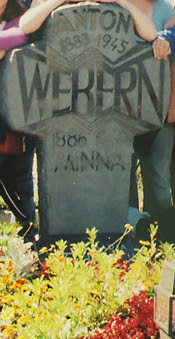I wanted to join the Army. You could join at seventeen if a parent signed his/her permission. I asked my mother if she'd sign for me. She said no. "I didn't do it for any of the other boys and I won't do it for you ... if anything happened to you I wouldn't want to have to think it might not have if I hadn't signed for you."
Finally I got a job at Western Union Telegraph Company as a teletype operator in Fort Wayne but they wouldn't let me start until I was eighteen. I already had plans to join the Army on January 2nd, the day after my eighteenth birthday, but thought I'd give Western Union a try ... for one thing, an employer was, in those days, obliged to give you your job back once you'd completed your service, and, having had such a tough time landing a job, this "security" seemed like a deal.
 |
| Francoise Sagan |
A strange melancholy pervades me to which I hesitate
to give the grave and beautiful name of sorrow. The idea
of sorrow has always appealed to me, but now I am
almost ashamed of its complete egoism. I have known
boredom, regret, and occasionally remorse, but never
sorrow. Today it envelops me like a silken web, enervat-
ing and soft, and sets me apart from everybody else.
Somehow the phrases 'strange melancholy' and 'grave and beautiful name of sorrow' and 'the idea of sorry has always appealed to me' made a great impression on me. Thus a French girl who'd had a novel published at eighteen, a slim novel which had sold over half a million copies in its first year, became my first literary crush. (Some fifty years later, walking with my dear friend Ellen on St. Mark's Place in the East Village, there was a perfect vintage paperback copy of Bonjour Tristesse on a street vendor's table; I had Ellen open it and I recited that opening paragraph from memory; I made one mistake, inserting the word 'today' after 'pervades me' which, of course, comes alarmingly close to splitting an infinitive.)
My love for Francoise Sagan has not faded in the least.
One of my most treasured possessions is a 1965 gift from my friend Richard English, an 8-1/2 X 11 edition of a diary, illustrated by Bernard Buffet, which Sagan kept while institutionalized to de-toxify herself from morphine, to which she had become addicted while recuperating from an accident in her glamourous Aston Martin convertible:
Age never slowed her fast living. She indulged in whiskey, cigarettes, drugs, and affairs. In her sixties she was asked by a journalist if she still used cocaine. "If it comes along, yes," she answered. Her health was poor; still, she had no regrets.
She died at sixty-nine and is buried in the town of her birth, Cajarc, in southwestern France










